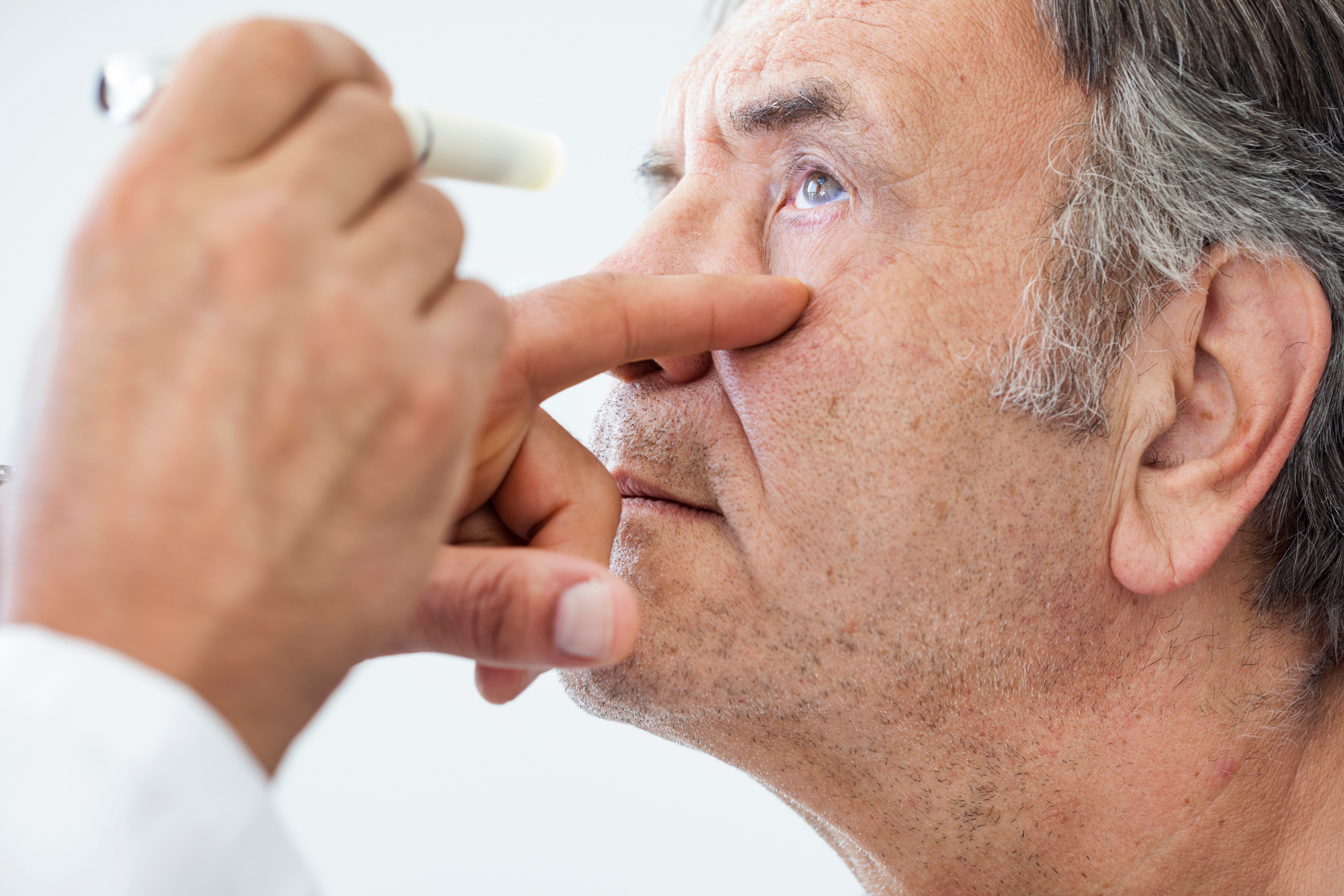
One of the realities of growing old is that your vision will likely change. In some cases, even the best diet and exercise regimen in the world won’t let you escape your 40's without a pair of reading glasses. But fuzzy fine print and vision loss are not the same thing. When it comes to vision loss, lifestyle changes can help you ward off a variety of medical conditions that can rob you of your vision.
Common Eye Problems
As we age, several eye problems can crop up and damage our vision:
- Age-related macular degeneration (AMD) is the leading cause of permanent impairment of reading and fine or close-up vision among older adults, according to the Centers for Disease Control and Prevention. AMD is a cellular breakdown in the central part of the retina that causes a hole in the middle of your vision, making it impossible to read or to drive. There are two types of the disease, dry AMD and wet AMD. The dry kind progresses slowly, building over many years. The wet kind, which is more rare, can flare up suddenly.
- Glaucoma is a disease caused by high fluid pressure in the eye, which damages the optic nerve. Peripheral vision is the first to be affected, but the damage can spread and, in some cases, result in total vision loss. Prescription eye drops and surgery can control the fluid pressures in the eye and help preserve the optic nerve, but there is no cure for glaucoma, nor is there currently a way to reverse any damage done to the optic nerve.
- Cataracts refers to the clouding of the eye’s lens, which happens as we age and the lens becomes more dense and opaque. Cataracts are common, with more than 17 percent of adults over age 40 having one in at least one eye. In fact, it is the leading cause of blindness globally, even though it can be corrected through an increasingly common laser surgical procedure.
While nothing can inoculate you against these eye conditions, a combination of diet, lifestyle and exercise choices can lower your risk of getting them or suffering major vision damage.
Get Regular Eye Exams
Many eye diseases have no symptoms in their early stages and can only be diagnosed during an eye exam when the pupil is dilated. Catching eye diseases early is important. With early diagnosis and treatment, you can prevent or severely slow damage from glaucoma and macular degeneration, as well as from other eye conditions, such as diabetic retinopathy, which is a loss of vision that occurs as a complication of diabetes. It is recommended that older adults get a dilated eye exam every one to two years.
Take Your Vitamins
The National Eye Institute recommends a cocktail of vitamins and minerals to reduce the risk of getting macular degeneration. Vitamins included are vitamin C, vitamin E, lutein, zinc, and copper.
Eat Your Vitamins
A healthy diet is also key to preventing the development of eye diseases, especially macular degeneration. In fact, healthy diet has been credited, in part, with reducing the prevalence of AMD in adults over age 40. Foods to focus on include spinach, salmon, walnuts, berries, orange bell peppers, broccoli, tea, soy, eggs and avocados.
Quit Smoking
An important lifestyle change to help prevent macular degeneration is to quit smoking. Smoking quadruples your risk of developing macular degeneration, and your risk remains elevated as much as 20 years after you quit. It also increases your risk for cataracts, glaucoma, diabetic retinopathy and dry eye syndrome.
Stay Lean
Obesity is also associated with an increased risk of developing AMD, glaucoma and diabetic neuropathy. Staying lean, rather than getting lean after being overweight, reduces your risk for developing AMD.
Wear Sunglasses
Exposure to the sun’s ultraviolet (UV) light raises your risk for eye cancers as well as cataracts and macular degeneration sunglasses. Ten percent of cataracts cases can be directly attributed to damage from UV rays. Sunglasses with 100 percent UV block and wide-brimmed hats protect the eyes from these rays and help prevent these damaging eye conditions.
Taking good care of your eyes is a lifelong task. And while you can’t help the vision you were born with, if you take proper steps, such as maintaining a healthy diet and healthy weight and making healthy lifestyle choices, such as wearing sunglasses, not smoking and getting regular eye exams, you will be well on your way to preserving your vision well into old age.






